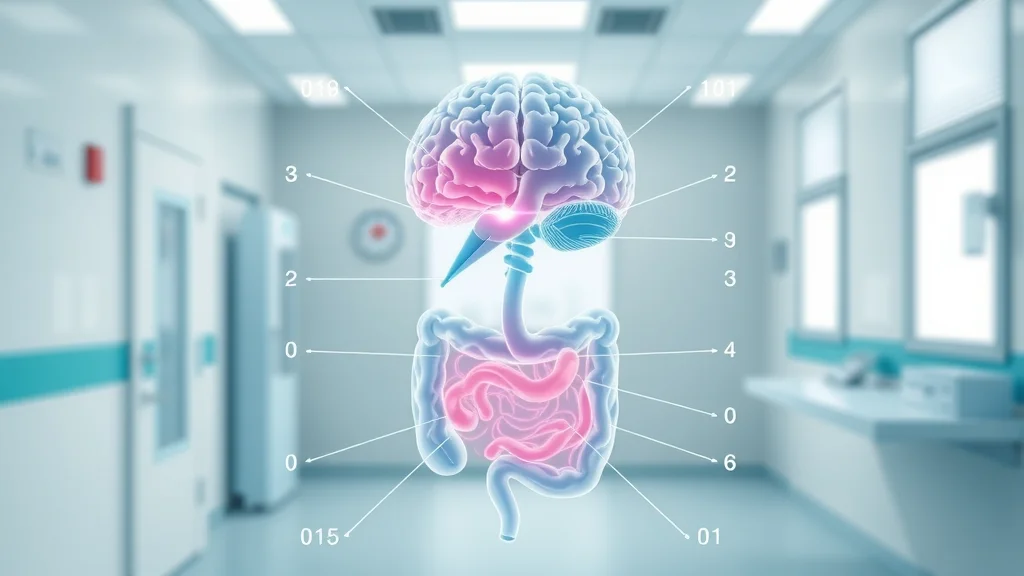Did you know that as many as 1 in 10 people worldwide struggle with irritable bowel syndrome, yet traditional treatments fail to provide lasting relief for a significant number of them? This astonishing statistic drives a surge of interest in alternative and integrative therapies—none more intriguing than hypnosis. Long viewed as unconventional, hypnosis and IBS are now gaining attention from researchers, health professionals, and patients alike. In this article, we'll explore how a mind-body approach is unlocking new doors for those living with irritable bowel syndrome (IBS), showcasing credible science, real experiences, and hands-on guidance.
Reimagining IBS: A Surprising Path to Relief with Hypnosis
The struggle with IBS symptoms—ranging from unpredictable bowel habits and abdominal pain to anxiety and the challenge of finding effective therapy for IBS—often feels endless, with sufferers sometimes spending years searching for improvement. However, an increasing body of evidence suggests that hypnosis and IBS may be more interconnected than many realize. Through directed hypnotherapy, experts are finding that mind-body approaches can regulate the gut-brain axis, addressing not just gastrointestinal symptoms but also the anxiety and stress that may fuel these issues. The core idea is simple but powerful: by targeting both mind and body, hypnosis can offer relief even when traditional medication or dietary changes, such as the low FODMAP diet, aren't enough.
This reimagining of IBS treatment is not only a breath of fresh air for those who have found little success with conventional routes but is backed by clinical trials showing significant improvement for many. Whether you’re curious about the logic behind hypnotherapy for IBS, looking for practical strategies, or eager to hear personal stories, the journey ahead promises valuable perspective on regaining quality of life and managing symptoms for the long term.
-
What You'll Learn:
How hypnosis and IBS are interconnected
The science behind mind-body approaches to irritable bowel syndrome
Expert opinions and personal reflections on directed hypnotherapy and other mind-body therapies for IBS
Practical tips and recommendations for improving quality of life with hypnosis and IBS
Irritable Bowel Syndrome at a Glance: Facts and Trends
Irritable bowel syndrome is a chronic functional gastrointestinal disorder characterized by a constellation of symptoms, including abdominal pain, bloating, and changes in bowel habits such as diarrhea, constipation, or a mix of both. The exact root causes of IBS remain complex and multifactorial, encompassing genetics, gut motility issues, infection, stress, and disruptions in the gut-brain connection. Current research points toward visceral hypersensitivity and altered gastrointestinal signaling as key culprits, making the disorder both elusive and personal.
Recent statistics shine a light on just how pervasive IBS is. Global prevalence hovers around 10-15%, affecting people of all backgrounds, though women and individuals under 50 are disproportionately impacted. Surveys reveal that IBS can profoundly affect quality of life, triggering cycles of missed work, social withdrawal, and ongoing anxiety. Given these facts, the need for innovative treatment options that address both physical and psychological contributors is clearer than ever.

Definitions: Understanding irritable bowel syndrome (IBS), IBS symptoms, and root causes
Recent statistics on irritable bowel, prevalence, and demographic insights
Comparative Data: IBS Symptoms Prevalence vs. Effectiveness of Common Treatments |
||
Symptom/Treatment |
Prevalence among IBS Sufferers (%) |
Improvement Rate (%) |
|---|---|---|
Abdominal Pain |
70-90 |
50 (medication) / 60-80 (hypnotherapy) |
Bloating |
65-85 |
40 (low FODMAP diet) / 70 (hypnotherapy) |
Altered Bowel Habit |
75-80 |
55 (diet) / 75 (directed hypnotherapy) |
The Mind-Body Link: Why Hypnosis and IBS Deserve Attention
One of the most compelling aspects of hypnosis and IBS is its focus on the mind-body relationship, a connection not given enough weight in standard gastrointestinal care. Directed hypnotherapy uses verbal cues, relaxation, and guided imagery to help individuals modulate their gut’s response to stress and discomfort—directly addressing both abdominal pain and irritable bowel syndrome symptoms in tandem. By leveraging the gut-brain axis, hypnosis can decrease visceral hypersensitivity and disrupt the cycle of pain, anxiety, and digestive trouble that plagues many IBS sufferers.
The logic behind using hypnotherapy for IBS, as opposed to conventional therapies alone, lies in its potential for lasting results without medication side effects. Where the low FODMAP diet or standard medicines may act on symptoms, directed hypnotherapy aims to retrain the gut-brain feedback loop. Several clinical trails have reported significant improvement in both symptom reduction and overall quality of life, with effects often persisting long term. Experts believe this success owes as much to the emotional components of IBS as it does to physical mechanisms.
While exploring the mind-body connection in IBS, it's helpful to understand how hypnosis compares to other practices like meditation. For those interested in the distinctions and unique benefits of each, this in-depth guide on hypnosis versus meditation offers valuable clarity on their roles in holistic wellness.

“Hypnosis provides a unique opportunity to tap into the mind’s influence over gut distress.” — Practitioner of directed hypnotherapy
Personal Reflections: Can Mindset Transform IBS Outcomes?
The emotional landscape of IBS is often fraught with frustration, doubt, and even embarrassment. It's not uncommon for people to become fixated on their bowel habits, which in turn heightens stress—feeding into the very cycle that aggravates symptoms. From an opinion-based angle, the connection between emotion, stress, and irritable bowel syndrome deserves center stage in any conversation about therapy for IBS. Over the years, research has found that addressing mindset through interventions such as journaling, cognitive behavioral practices, or hypnotherapy can positively impact both symptoms and overall outlook.
Changing one’s mindset isn’t a miracle cure, but for many, it can alter the long term course of IBS. Adopting an attitude of hope, actively seeking therapies like directed hypnotherapy, and learning to recognize and manage emotional triggers has helped countless IBS sufferers experience meaningful symptom relief. A shift away from feeling controlled by IBS symptoms towards participating actively in their own recovery often marks the turning point for regaining quality of life.

An opinion-based analysis of the connection between emotion, stress, and irritable bowel syndrome
How one's mindset might affect the long term course of IBS symptoms
What is Directed Hypnotherapy for Irritable Bowel Syndrome?
Directed hypnotherapy is a specific type of hypnosis treatment that zeroes in on gut symptoms and the gut-brain axis, tailoring each hypnosis session for the unique needs of IBS sufferers. Unlike generic relaxation techniques, directed hypnotherapy combines suggestion, visualization, and guided focus with targeting physical gastrointestinal symptoms and the emotional states that come with them. A trained therapist usually leads these therapy sessions, sometimes combining face-to-face and digital formats, to address abdominal pain, bloating, and erratic bowel habits.
This approach stands out from other therapy for IBS in its ability to deliver results without the dietary restrictions of a low FODMAP diet or the side effects of medication. Because directed hypnotherapy tackles both the physical and psychological components, many people see more significant improvement in their IBS symptoms, quality of life, and long term resilience. If you’re seeking an intervention that treats the whole person—body and mind—directed hypnotherapy could be the best fit.

Directed hypnotherapy: Definition, techniques, and uses for IBS symptom management
Hypnosis vs. other therapy for IBS: What makes directed hypnotherapy unique?
IBS Symptom Relief: Can Hypnosis Compete with Low FODMAP Diet or Medication?
When managing IBS, most people are introduced to the low FODMAP diet or standard medications as their primary treatment options. These methods certainly offer relief for some, modifying dietary triggers or suppressing symptoms. However, research comparing hypnosis and IBS outcomes to traditional routes reveals striking results—particularly in sustaining quality of life and achieving long-term improvement. Hypnotherapy has been found to address core IBS symptoms such as abdominal pain and bowel habit irregularities, often outperforming control groups relying solely on diet or drugs in clinical trials.
The question of whether hypnotherapy can offer enduring improvement is best answered by looking at success rates and quality of life data. Significant improvement in IBS symptoms is common, with many reporting positive effects that persist years after therapy ends. This contrasts with dietary changes, where adherence can wane over time, or medications where side effects and tolerance may develop. Directed hypnotherapy’s holistic impact means IBS sufferers aren’t just symptom-free—they experience a renewed sense of autonomy and hope.

Comparing hypnosis and IBS outcomes to traditional interventions like the low FODMAP diet
Does hypnotherapy offer long term improvement in quality of life for IBS sufferers?
Hypnosis and IBS: Success Rates, Quality of Life, and Comparison with Diet/Medication |
|||
Treatment Option |
Symptom Reduction (%) |
Quality of Life Impact |
Long Term Results |
|---|---|---|---|
Hypnotherapy |
60-80 |
Marked improvement in daily life, reduced anxiety |
Often persists years after therapy |
Low FODMAP Diet |
40-70 |
Improved symptoms, dietary compliance required |
Benefit may decline with diet lapses |
Medication |
40-60 |
Moderate symptom relief, potential side effects |
Relief dependent on continued use |
Real-Life Stories: My Experience with Hypnosis and IBS
“Hypnotherapy for IBS was a turning point after years of failed treatments.” — IBS patient testimonial
Firsthand accounts from IBS sufferers often highlight the frustration of living with abdominal pain, unpredictable bowel habits, and the anxiety that follows. For many, the search for relief spans years, involving countless treatments—some helpful, many disappointing. Personal anecdotes reveal a common theme: the turning point comes with discovering a mind-body approach, especially via directed hypnotherapy. One patient describes finally regaining daily confidence and shedding the constant dread of flare-ups, while another recalls the surprise of symptom improvement without strict diets or ongoing medications.
Across these stories, the most celebrated changes aren’t just reduced IBS symptoms, but the ability to participate in social life, plan travel, or simply enjoy meals without fear. Hypnosis session by session, patients report a transformation in mindset, a reduction in physical discomfort, and a long term lift in quality of life—proving that hope is far from lost, even after years of struggle.

Personal anecdotes: Irritable bowel syndrome, hypnotherapy, and finding hope
Common themes: Quality of life, abdominal pain, and long term symptom change
Expert Opinions: Where Are We on Hypnotherapy for IBS?
The medical community's relationship with hypnotherapy for IBS has evolved from skepticism to cautious endorsement. A growing number of clinical trials and long term studies show significant improvement in both IBS symptoms and psychological well-being for those using directed hypnotherapy. Gastroenterologists and psychologists now recognize that mind-body therapies can play a pivotal role in treatment of irritable bowel syndrome, with some practitioners making it a standard option for their patients—especially those with symptoms unresponsive to diet or medication.
Still, there are pockets of skepticism, particularly regarding the scalability and accessibility of quality hypnosis treatment. Enthusiasts point to the therapy's low risk profile and patient preference, while critics call for larger, more definitive studies. The evolving consensus is clear: mind-body therapy for IBS, particularly in the form of directed hypnotherapy, has firmly moved from the fringes of alternative medicine into the mainstream toolkit for improving patient quality of life.

Digesting the research: Are health professionals embracing hypnotherapy for IBS?
Skepticism, enthusiasm, and the evolving status of mind-body therapy for IBS
Guidelines and Best Practices: Integrating Hypnosis into IBS Therapy
Consult your primary healthcare provider to rule out other gastrointestinal disorders before beginning hypnotherapy.
Seek out a trained therapist with expertise in directed hypnotherapy for IBS.
Commit to a series of sessions—most programs involve 6-12 weekly sessions for optimal results.
Complement hypnosis with a holistic self-care plan, including stress reduction and healthy eating.
Track progress in IBS symptom and quality of life to monitor response to therapy.
Be mindful of red flags such as acute symptom changes; these warrant medical review and possibly other therapy for IBS.
To sustain improvement, practice self-hypnosis, record therapy insights, and stay attuned to emotional triggers over time.

Experience an animated overview of hypnosis for IBS, from gut-brain connection science to the flow of a typical hypnotherapy session. This calming, modern video offers a visual walk-through of mind-body interactions, expected benefits, and what new patients can anticipate as they begin their therapy journey.
Animated overview: Hypnosis for IBS, what to expect, and key results
The Long Term View: Hypnosis and IBS as a Lifelong Approach
Weighing the long term benefits and risks of hypnosis for irritable bowel syndrome, clinical research and real-world cases both point toward safety and sustainability. While results can vary, many individuals report persistent symptom reduction and resilience in quality of life. Regular symptom tracking—often on apps or in journals—helps people see ongoing benefits and spot early warning signs, encouraging a proactive rather than reactive approach to IBS management. Challenges remain, but the holistic and adaptive nature of hypnosis means patients can tailor their therapy to changing needs over years, not just weeks.
Monitoring quality of life and the course of IBS symptoms over time is crucial. Directed hypnotherapy supports not just physical comfort, but also emotional well-being, autonomy, and a sense of mastery over one’s health, often for the long term.

Weighing up long term benefits and risks of hypnosis for irritable bowel syndrome
Monitoring quality of life and IBS symptom progression over time
People Also Ask About Hypnosis and IBS
Does hypnotherapy work on IBS?
Clinical research consistently shows that hypnosis and IBS therapy—especially directed hypnotherapy—can reduce core symptoms such as abdominal pain, bowel habit unpredictability, and related anxiety. Effects of hypnotherapy are well-documented, with significant improvement often sustained long term after therapy ends. Large scale clinical trials report that around 60-80% of participants experience noticeable relief, making this approach one of the most evidence-based mind-body interventions for irritable bowel syndrome.
What calms irritable bowel syndrome?

Calming IBS generally takes a comprehensive approach. Strategies include stress reduction, alternative therapies such as mindful breathing, and dietary adjustments like the low FODMAP diet. Hypnosis sessions aimed at breaking the cycle of gut-focused anxiety and retraining gut-brain feedback are especially effective for many. Traditional medication and targeted therapy sessions for IBS can also provide relief, but no single solution fits all—individualized care remains key.
What is the new treatment for IBS?
Innovative therapies for IBS continue to emerge, ranging from advanced digital interventions that monitor gut health to novel approaches like directed hypnotherapy. Diet, particularly the low FODMAP diet, still holds a place, but hypnotherapy is gaining traction due to its unique mind-body angle. Blending psychology, relaxation, and physiological retraining, hypnosis represents a new frontier in both short- and long-term treatment of irritable bowel syndrome.
What emotion is linked to IBS?
Anxiety, stress, and feelings of being overwhelmed are commonly associated with irritable bowel syndrome. The gut-brain axis is sensitive to emotional inputs, making mood a powerful factor in both triggering and managing IBS symptoms. Addressing these emotions through therapies like hypnotherapy or cognitive-behavioral techniques can have a transformative impact on daily comfort and the progression of IBS symptoms for the long term.
This practical demonstration walks viewers through hypnosis techniques specifically for managing IBS symptoms. By focusing on breath, guided imagery, and intentional muscle relaxation led by a trained therapist, many people discover real-time strategies for soothing the gut and calming the mind.
Frequently Asked Questions: Hypnosis and IBS
Is hypnotherapy safe for IBS?
Yes, hypnotherapy for IBS is considered safe for most adults and adolescents. Under the guidance of a qualified professional, hypnosis session protocols are gentle and tailored to individual needs, with very low risk of adverse effects compared to some medications.How long does it take to see results from hypnosis and IBS therapy?
Most IBS sufferers begin to notice improvements within 4-6 sessions, with full benefits often seen by the end of a typical 8-12 week therapy program. Some experience sustained relief for months or even years after therapy concludes.Can hypnosis replace medication for irritable bowel syndrome?
Hypnosis may sometimes reduce or eliminate the need for medication, especially for those with mild to moderate symptoms of IBS. However, the decision to stop medication should always be made with your healthcare provider’s guidance.What happens during a directed hypnotherapy session for IBS?
A directed hypnotherapy session typically involves guided relaxation, visualization, and suggestion techniques focused on reducing gut sensitivity and stress. Sessions are led by a trained therapist in a supportive, non-invasive setting, and may include at-home exercises for best results.
Key Takeaways: Hypnosis and IBS — The Final Word
Mind-body connections play a crucial role in IBS symptom management and quality of life.
Directed hypnotherapy shows strong evidence for lasting relief in irritable bowel syndrome, sometimes surpassing conventional treatments.
Combining hypnosis and IBS therapy with self-care, mindset shifts, and a supportive provider can make all the difference for long term outlook.
Ready to Try Hypnosis and IBS Therapy for Yourself?

Take the first step: Consult a certified therapist—discover your options for personalized, mind-body IBS therapy and start your journey to lasting digestive wellness today!
If you’re inspired to deepen your understanding of mind-body therapies, consider broadening your perspective beyond IBS. Exploring the nuanced differences between hypnosis and meditation can reveal new pathways for self-care and personal growth. By learning how these practices complement each other, you’ll be better equipped to tailor your wellness journey and unlock even greater benefits for both mind and body. For a comprehensive look at how hypnosis and meditation compare, discover the key distinctions and synergies between these transformative techniques and take your next step toward holistic well-being.
 Add Row
Add Row  Add
Add 




Write A Comment